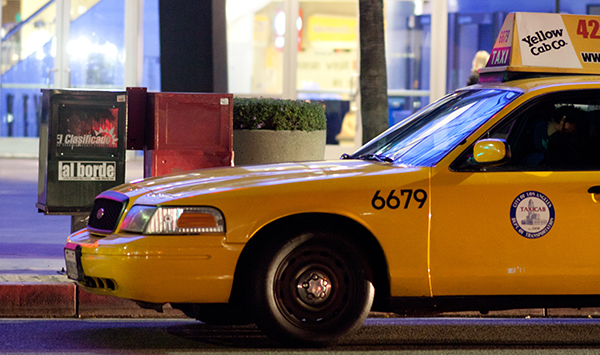
The UCLA Labor Center just released a policy brief that analyzes Los Angeles Department of Transportation taxi meter data from 2009 to 2014. The findings describe the economic impact of companies like Uber and Lyft on Los Angeles’s taxi industry.
Key Findings:
- Though the taxi industry saw a steady increase in rides since the recession, it experienced a significant drop two years ago, at the same time that Uber and Lyft entered the Los Angeles market. Between 2013 and 2014, taxi ridership dropped by 18 percent, a total of 1.4 million trips less than the previous year.
- This decreased revenue translates into a loss of 221 taxi industry jobs for the city, 319 jobs county-wide, and $32 million dollars in losses to the California economy.
- The exception is the airport where the number of ridership actually increased during the same time period. While dispatch trips dropped by 24 percent, LAX airport trips increased by 15 percent.
Says Saba Waheed, Research Director at the UCLA Labor Center:
“Our analysis shows that the airport is really the last lifeline for the taxi industry in Los Angeles. As we see more companies like Uber and Lyft entering the market, we need to think about what we want for the future of Los Angeles’s economy. We need to find ways to create good, quality jobs rather than reward a system of unequal competition where two sets of workers are competing against each other.”
For media interviews, contact Stefanie Ritoper, sritoper@ucla.edu, 213-375-4841


